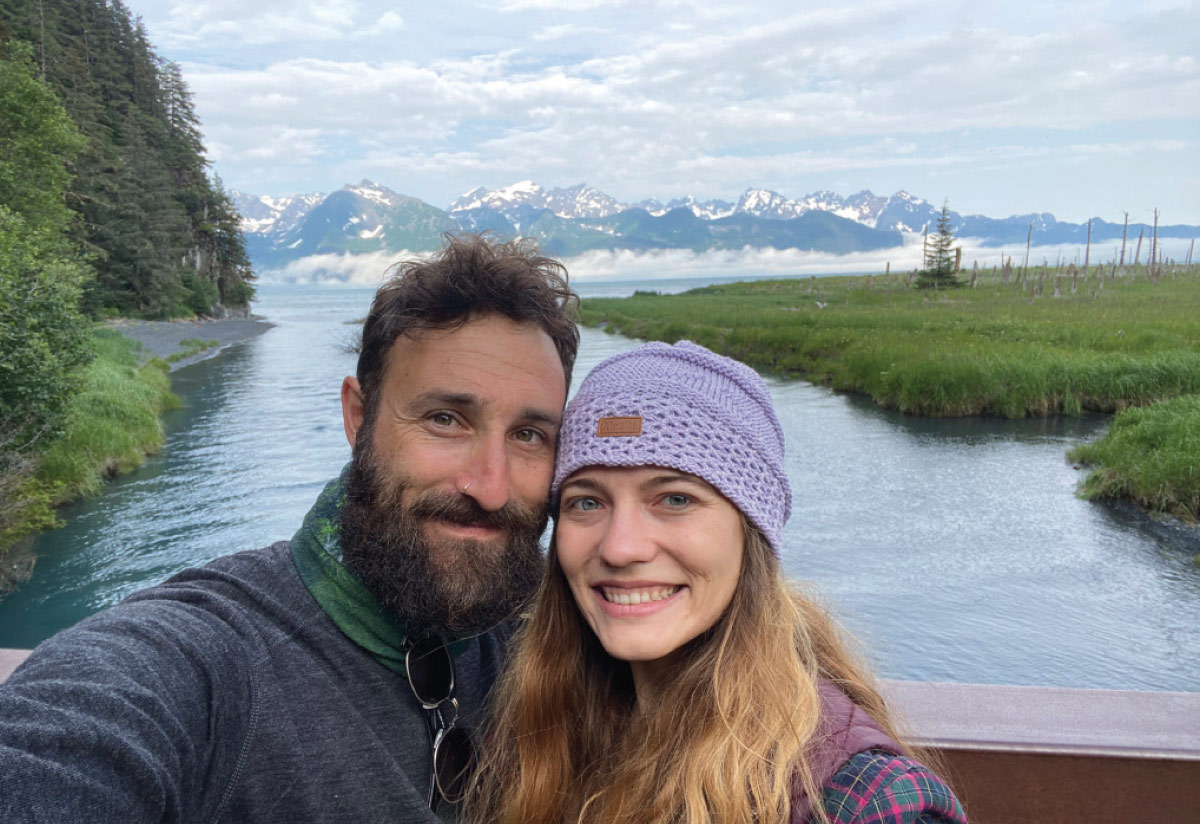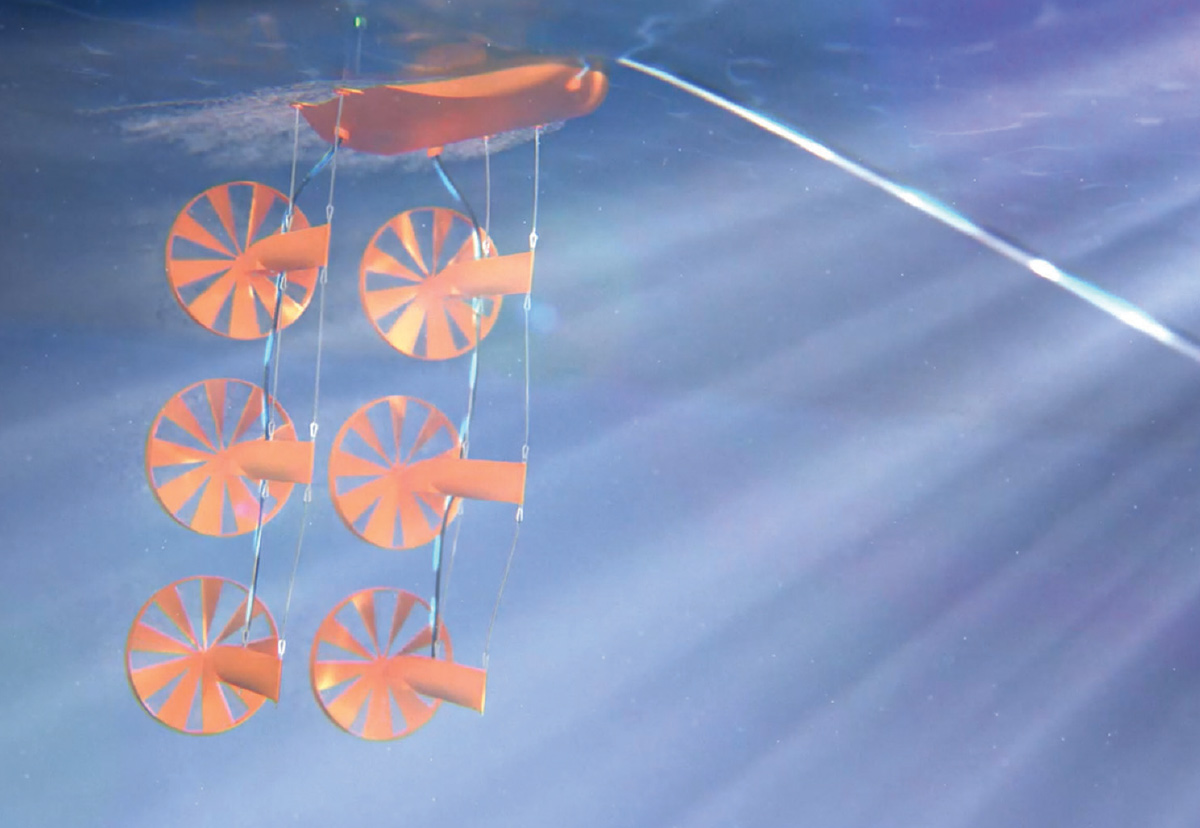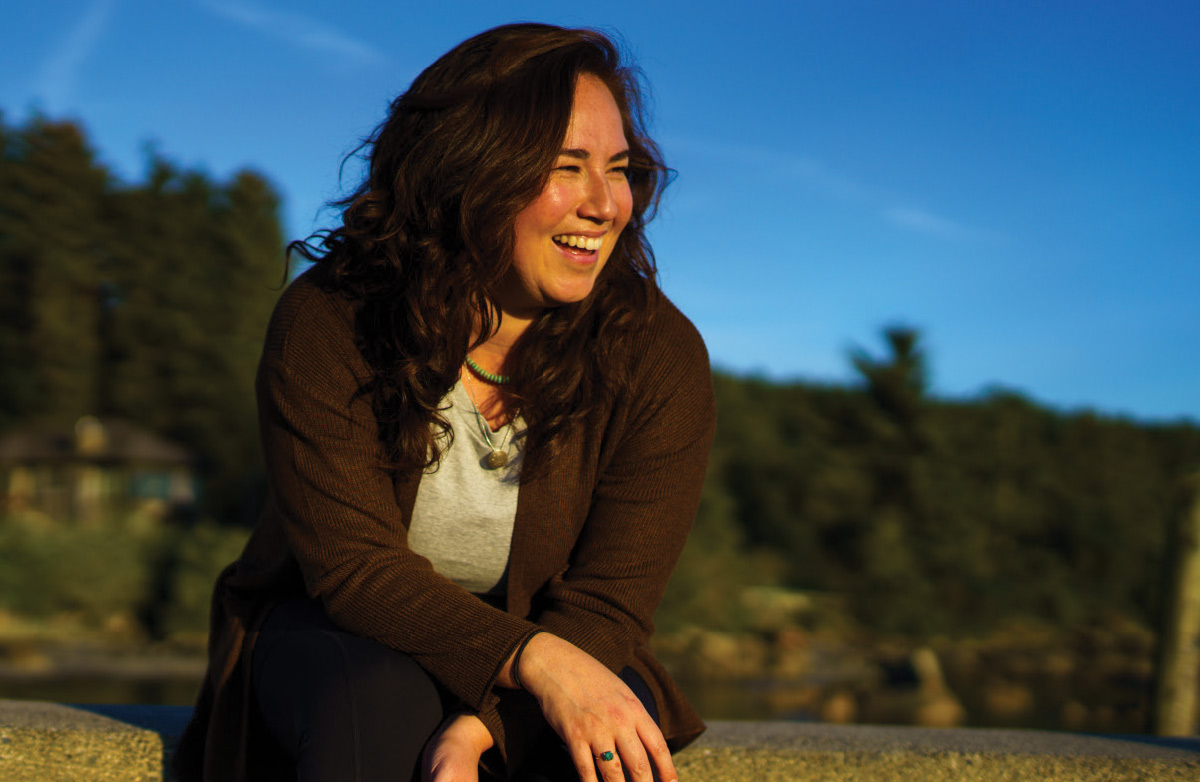distinctive entrepreneurial spirit thrives in Alaska, driven by enterprises that balance sustainability and environmental stewardship with their economic activities. These organizations work to reduce their ecological impact while contributing to the economy and society. They are not just seeking to make a profit; they are dedicated to making a difference.
Take Spruce Root, for instance. The Juneau-based, Native-led nonprofit gives local entrepreneurs access to business development and financial resources in the form of loan capital, business coaching, workshops, and competitions. For more than a decade, Spruce Root has operated its annual Path to Prosperity Business Competition. The program trains entrepreneurs in Southeast to develop business models based on the “triple bottom line” approach, which considers social, environmental, and economic impacts, also known as the Three Ps: people, planet, and profit.
“We have designed business plan templates as well as other resources that support entrepreneurs looking to model sustainable businesses,” says Executive Director Alana Peterson. “We specifically support sustainable startups and other small businesses through business planning, financial analysis, and creation of measurable sustainability goals.”
For example, 2024 Path to Prosperity winner Sitkana received $20,000 to develop its renewable ocean energy business. The company—which was founded in 2021 and relocated to Alaska in 2023—also gained valuable business guidance and connections. “They brought in experts and mentors to teach great practices,” says Sitkana founder and CEO Lance McMullan. “It is great to feel a sense of community with other founders building companies here.”
This year, Spruce Root is trying a new approach with the Path to Prosperity competition: it will connect entrepreneurs with science, technology, engineering, and mathematics (STEM) specialists. This will enable Spruce Root to engage with a broader variety of business owners. “Often, Alaska Native entrepreneurs don’t see their ideas as being STEM,” says Peterson, “and the competition this year gives us an opportunity to really tell another narrative and reach entrepreneurs that have been thinking about STEM businesses for years but maybe would never have used such a Western term to describe it.”
Peterson is seeing sustainable practices across industries in Alaska. Entrepreneurs are investigating alternative fuel sources, sharing healing herbs and healing arts, building electrical fishing boats, and launching kelp harvesting and manufacturing businesses.
She adds, “This is not a new concept but an Indigenous way of operating within the world around us. Tlingits have practiced ‘sustainability’ strategies for thousands of years, from harvesting resources in ways that ensure plentiful regrowth to innovating new solutions like halibut hooks and more.”
Peterson says she believes sustainable businesses provide immeasurable benefits. “I believe that inherent in this concept is the value these businesses have in Alaska: they give life to people and places, creating a cycle of abundance that allows future generations to continue to thrive here,” she says. “That, I think, is the ultimate impact these businesses can have.”
“Sitkana is building technology to deliver reliable, affordable, and clean power to remote and coastal communities,” says McMullan, a fisherman turned engineer. “Many places in Alaska rely on diesel generators while they are surrounded by some of the most powerful tides and tidal currents in the world. I wanted to build a solution that not only made sense for Alaska but could also scale globally.”
Some of the strongest tidal currents in the United States are in Southeast, where 20-foot tides fill 100-mile-long fjords, according to Sitkana’s website. Sitkana aims to generate low-cost electricity for cities in Alaska and other places situated near ocean currents. And its hydrogenerators are designed to be installed in just hours—without the need for underwater foundations or divers.
Sitkana’s innovative ambitions have won the approval of the US Department of Energy. Last year, the company secured a grant from the Office of Technology Transitions to revolutionize the capture of tidal energy by using idle fishing vessels in Alaska. Sitkana—in partnership with Sandia National Laboratories—will equip vessels with its hydroelectric devices during the off season, transforming them into floating power generators. This will provide energy during peak demand periods but also offer an additional income stream for vessel owners.
Based in Juneau, Barnacle Foods was established in 2016 as a small experiment in a home kitchen. It has grown into a business that has sold more than a million units, according to co-owner Max Stanley. “We’re passionate about creating delicious, sustainable foods using Alaska-grown ingredients—most notably kelp,” he says. “Our products include hot sauces, pickles, salsas, seasoning blends, and more. This summer, we are releasing a new product line that uses some of the same ingredients but in a new form: cookies.”
The inspiration for the business was the owners’ love for food, the ocean, and a desire to create a company that gives back to the community. “We saw an opportunity to use abundant, underutilized resources like kelp in a way that supports both the environment and local communities,” Stanley says.
That opportunity, guided by the Three Ps model, grew into product lines sold in stores nationwide. Stanley says, “We believe food is one of the most powerful ways to connect people to place. At Barnacle we’re committed to continuing to grow in a way that honors the environment, supports our community, and inspires others to reimagine what’s possible with the resources we have right here in Alaska.”
Gondwana Ecotours


Sitkana

Sitkana

Spruce Root
Sternberg’s motivation for launching Gondwana Ecotours in 2013 was deeply rooted in his personal values. He had studied environmental law at Tulane University in New Orleans, Louisiana, and envisioned using his degree to conserve and protect wildlife, national parks, and Indigenous cultures.
But reality altered his plans. “As I went deep down that rabbit hole, I realized how political that work was, and I also realized that wasn’t necessarily for me,” he explains. “So rather than arguing with people in a courtroom or in research and writing, I decided it would feel productive and more suited to my skills and goals to share beautiful places worth protecting with people… to let them experience them and perhaps develop their own passion.”
At Barnacle Foods, a major challenge has been working with an ingredient, kelp, that had no existing supply chain in Alaska. When the company started, there were no established systems for farming, harvesting, processing, or transporting kelp. So company leaders created a solution.
Stanley explains, “We had to build that from the ground up, working directly with seaweed farmers, harvesters, regulators; helping develop harvesting methods; and figuring out how to transport and process efficiently. On top of that, we face all the usual logistical hurdles of running a business in Alaska: staffing, high shipping costs, et cetera.”
For Gondwana Ecotours, a frustrating issue has been travel spending’s dependence on discretionary income, which fluctuates with broader market conditions beyond the company’s control. For example, the COVID-19 pandemic significantly reduced travel for Gondwana Ecotours, and recent events such as tariffs have slowed bookings this spring. Sternberg says his biggest challenge is being a good partner and boss while delivering business growth despite unpredictable external factors. “It feels a little outside of my control,” he says.
Sitkana had to overcome financial adversity. A key issue, McMullan says, was funding for early-stage technology development, especially in hardware technology. Yet the company has persevered. “Developing ocean energy systems takes patience because it can’t scale like an app,” he says. “On top of that, tidal currents are not well known because they only form in a few places in the United States, so we have found the most support from our local community.”
Recently, Sitkana achieved an important milestone: testing its prototype in ocean conditions. This proved that the company’s core technology works and provided critical data to help the next phase of development. “Our biggest steps are still ahead,” McMullan says. “We are proud to be working alongside Southeast Alaska communities as we build low-impact systems for generating predictable daily energy.”
Barnacle Foods takes pride in being one of the few Alaska-based, consumer-packaged-goods businesses using local ingredients—especially something as unique as kelp. By turning a local, underutilized resource into value-added products, the company is helping to build a new kind of food economy in the state. “It’s exciting to create products that are grown and made in Alaska and then shipped to stores across the country,” Stanley says. “We see this as an important step in the value chain that creates opportunity—not just for our team, but for seaweed farmers, processors, and other small businesses in coastal communities.”
One of Barnacle Foods’ proudest accomplishments was getting its products onto the shelves of national retailers such as Whole Foods Market and World Market. “We still get a kick [out of] walking into stores outside of Alaska and seeing jars of kelp salsa on the shelves,” Stanley says. “It proved that a product made with Alaskan kelp can resonate with a much larger audience.”
Gondwana Ecotours itineraries incorporate boutique local operators, including family-owned bed-and-breakfasts, restaurants, and individuals. This partnership allows families to improve their livelihood and, in some cases, expand their business.
For example, one family that gets visited on the Northern Lights Adventure tour was able to stop working another job far from their homestead due to increased income from the tour. Also, a family-owned bed-and-breakfast that Gondwana Ecotours uses expanded to a second location. Gondwana Ecotours also hires an Alaska Native guide to provide custom group tours, which significantly supports his family and provides the flexibility he needs to care for his children.
In essence, the local economic impact of Gondwana Ecotours empowers people to pursue their own business goals and dreams.
Another rewarding achievement is Gondwana Ecotours’ carbon neutrality status. “We became fully carbon neutral about three years ago, and it was very exciting,” Sternberg says. “It was something I’d always wanted to do.”
Sternberg says he enjoys creating symbiotic relationships where everyone wins. It makes his tours more unique and competitive, enhances the guests’ experiences and access to authentic culture, and supports other local businesses.
Sternberg says, “It’s a situation where it’s in everyone’s best interest to make it sustainable—and that’s kind of the goal.”